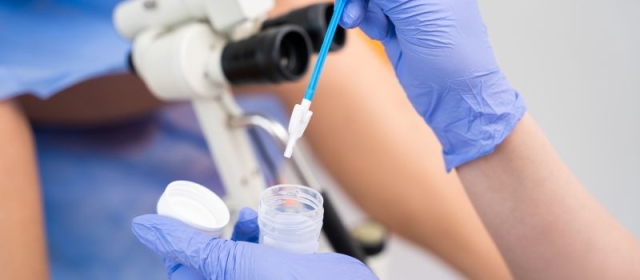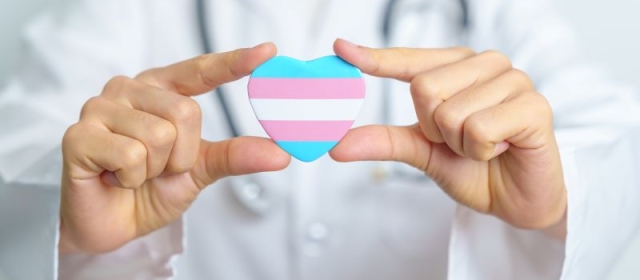
All News
Upcoming Events

Sexuality is an important part of life, affecting both physical and mental health. Regular sexual activity has been linked to benefits like a lower risk of certain diseases and improved well-being. While studies show that sexual activity is associated with better mental health, research specifically on women remains limited.

If you’ve been treated for a sexually transmitted infection (STI), you have taken an important step in protecting your health and preventing potential future complications. Proper treatment can eliminate the infection, reduce symptoms, and lower the risk of transmission to others. At this point, you might assume you’re in the clear. However, it is possible to get the same STI again, even after completing treatment. Understanding how reinfection occurs and how to protect yourself can help you stay healthy.

Premature ejaculation (PE) is a common sexual issue in men, informally defined as ejaculation that happens sooner than desired – often within a minute of penetration. The causes of PE are not fully understood, but they may be linked to both psychological and biological factors. Some men with PE experience high anxiety or depression, while others may have an overactive ejaculatory reflex or genetic predisposition towards early ejaculation.

Vestibulodynia is a chronic pain condition affecting the vulvar vestibule, the sensitive area between the labia minora and the hymen. This condition is often associated with pain during sexual activity, tampon use, or even daily activities such as sitting or wearing tight clothing. It is a localized form of vulvodynia and affects up to one in eight women during their lifetime. While the exact cause of vestibulodynia is unclear, potential factors include hormonal changes, nerve hypersensitivity, inflammation, and muscle tension. Managing this condition requires a tailored, multidisciplinary approach that combines medical, behavioral, and alternative treatments.

Introduction
Erectile dysfunction (ED) is a common condition that can impact a man’s confidence, relationships, and overall quality of life. While there are many treatments available, some men choose a penile implant as a long-term solution, especially when other options don’t work. However, one of the biggest concerns for patients considering this surgery is how their penile length will be affected.

Sexual health is a vital part of overall well-being, yet people with endometriosis often struggle with sexual dysfunction, impacting their quality of life and relationships. Studies show that about 78-80% of individuals with endometriosis experience sexual difficulties, such as pain during intercourse (dyspareunia). Many cope by avoiding intimacy or continuing sexual activity despite discomfort.

Erectile dysfunction (ED) is a common condition that affects many men, impacting their quality of life and relationships. While traditional treatments such as oral medications, vacuum erection devices (VEDs), and lifestyle changes are widely used, new therapies like platelet-rich plasma (PRP) injections are gaining attention. Here is a breakdown of the basics of using PRP therapy for ED, using insights from recent studies to help individuals better understand this potential emerging treatment option.

Puberty suppression (PS) with gonadotropin-releasing hormone agonists (GnRHa) has become a key part of gender-affirming medical treatment (GAMT) for transgender adolescents. This treatment helps delay unwanted sexual characteristics, like facial hair or a deep voice for transfeminine individuals, and it gives them more time to explore their gender identity before undertaking further medical steps. (One such step could be a gender-affirming surgery like a vaginoplasty).
_medium.png)
This message is to inform you that currently a fake email account for the ISSM President Run Wang is being used, requesting to respond to ‘help with some delegate logistics service matters on behalf of ISSM’ and 'assistance with a transfer of 3.750 Euros for a delegate travel support'.
Please note that this account is NOT an email account from the ISSM president and please do not reply or click on any links in this message. It is best to delete it directly. If you reply to the email, they will send you even more messages and try to get you convinced to transfer money. This method is called a smart form of phishing.
Phishing
Phishing is a form of online scamming using fake e-mails, websites or messages. How can you identify those fake e-mails and how can you distinguish them from real messages? Smart cybercriminals can really make you doubt. Here are a number of tips to help you assess whether or not you can trust a message.
The basic rule: Cyber criminals always try to abuse something you believe in or someone you trust. They also often try to use fear to achieve their ends. Do not get tricked!
Tips
Did you get a suspicious e-mail or phone call? Then answer these questions:
- Is it unexpected? - You received a message for no reason: you did not buy anything, have not had contact with them for a long time, etc. Investigate further.
- Is it urgent? - Stay calm: did you really get a first reminder to pay? Do you know that 'friend in need'?
- Do you know the person who sent the e-mail? - Check the e-mail address, and also check for spelling errors. However, beware: a legitimate e-mail address is no guarantee.
- Do you find the request strange? - An official body will never ask you for your password, bank details or personal details via e-mail, SMS or over the telephone.
- Where does the link you need to click on lead to? - Hover over the link with your mouse. Is the domain name, the word before “.be”, “.com”, “.eu”, “.org”, etc. and before the very first slash "/", really the organization’s name?
- Are you being personally addressed? - Be wary of messages using general and vague titles, or your e-mail address to address you.
- Does the message contain many linguistic errors? - Although seasoned cybercriminals tend to use language correctly, language errors or a foreign language can indicate a suspicious message.
If you are in doubt about emails you receive from ISSM (now or in the future) or have any questions/concerns, please always contact us through
Kind regards,
ISSM Secretariat

Pelvic floor exercises, often called Kegel exercises, can support the muscles in the pelvic region, which assist with vital functions like bladder control, bowel health, and sexual activity. While these exercises are well-known for their role in managing incontinence, they can also have benefits for sexual health. Here’s an overview of how pelvic floor exercises can enhance your well-being.

As sexual medicine evolves, non-pharmacologic tools like penile constriction devices (commonly called “cock rings”) offer options to enhance sexual experiences or help with erectile dysfunction (ED). These devices are worn at the base of the penis to improve rigidity and prolong erections by restricting blood flow out of the penis. While such devices have existed for centuries, their use became more mainstream in the 1970s. They’re now available in various materials and designs, some with advanced features like vibration or data tracking.


We're excited to present a unique opportunity exclusively for ISSWSH members! Enhance your professional growth and expand your network by opting for a joint ISSWSH/ISSM membership. For a limited time, from February 1 to April 1, 2025, you can enjoy the benefits of both societies and receive a one-year ISSM membership for 2026 absolutely free!
Why Upgrade to a Joint Membership?
- Expand Your Network: Join a vibrant community of over 3,500 international sexual medicine specialists.
- Comprehensive Knowledge: Gain free access to ISSM's portfolio of journals, including the Journal of Sexual Medicine (JSM), Sexual Medicine Open Access Journal (SMOA), and Sexual Medicine Reviews (SMR).
- Exclusive Opportunities: Avail yourself of scholarships, funding, and enjoy discounted rates at ISSM's international events and activities.
This offer is available to any ISSWSH member who has not held an ISSM membership in the past two years and commits to renewing their ISSWSH membership for 2026.
Don’t miss out on this opportunity to maximize your professional benefits and broaden your horizons in the field of sexual medicine. Upgrade your membership today and secure your place in our global community.
Please email the ISSWSH office at

